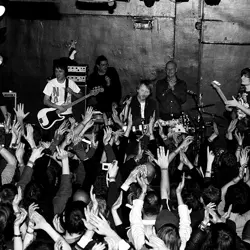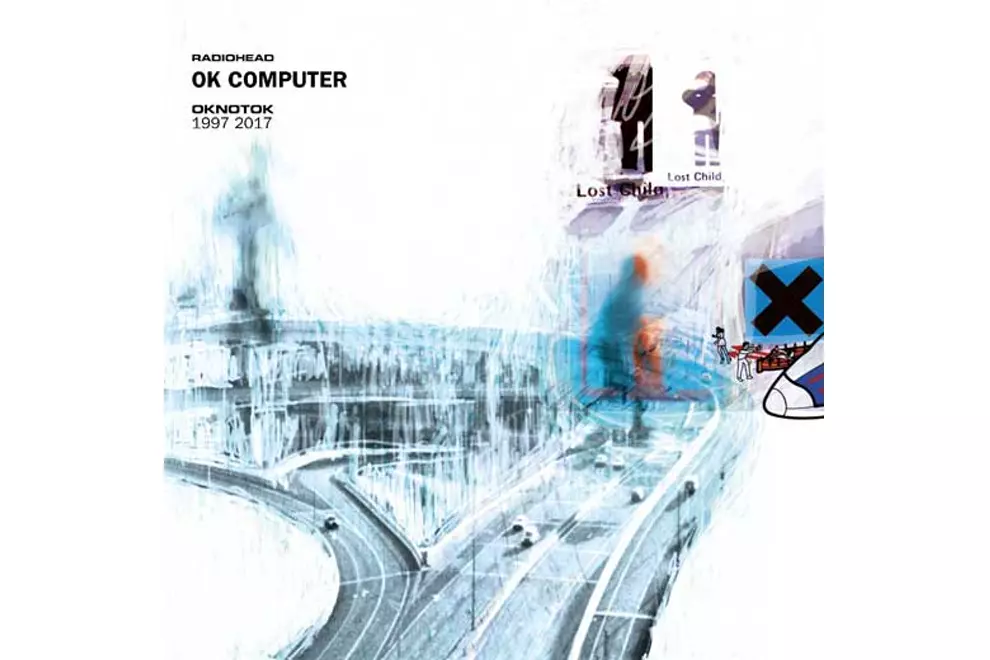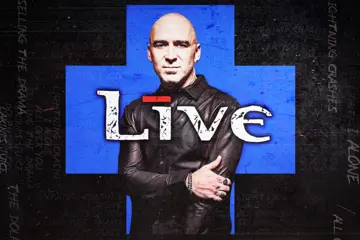 Radiohead
RadioheadImagine a world without OK Computer. Even writing about the idea in any half serious way is a challenge. It's a bit like trying to review the Magna Carta. Everyone knows it to be a time-tested document of impregnable reputation, case closed. So as something like an experiment, let's try to imagine life without it or even, if you can, without Radiohead.
Without OK Computer's studio sound we might never have had a climate where gear obsessed, technologically literate indie squares like Ben Gibbard (Death Cab for Cutie etc,) Grizzly Bear, Deerhunter and Algiers could thrive. And who knows what Muse's first few albums might've sounded like. Given a massive advance by UK label Parlophone, the band retreated to a large country house instead of a studio where they used ballroom acoustics for Let Down and a stone stair case for Exit Music, as if the song wasn't bleak enough to begin with. There they loaded up on pedals, Mellotrons, samplers and software. The banks of equipment were no comfort blanket though, Thom Yorke in particular suffering what he would later describe as hysteria and panic. It all resonated with Francis Ford Coppola's comments about his own dark triumph Apocalypse Now, specifically that "we had access to too much money, too much equipment, and little by little we went insane." Yorke found release though, penning and screaming his way through the blood curdling horror of Climbing Up the Walls, partly inspired by his time spent working as an orderly in a mental hospital.
Without OK Computer we might never have heard of Nigel Godrich, who went from Nigel Who, to "Nihilist" as he was known by Radiohead for the directions in which he was pushing their sound, to one of the most respected producers in the world; a man who could even make former Neighbours star Natalie Imbruglia sound respectable. Godrich had produced only one other album at the time, but whose engineering impressed the band when they first joined forces on My Iron Lung.
OK Computer can be viewed not only as a milestone in the progress of music but also a step on Radiohead's personal journey as it was the start of Radiohead not doing what the public demanded or expected. While this had been done well many times before - David Bowie's Low is a stellar example - for Radiohead it can retrospectively be viewed as a step towards the even more radical Kid A. It was also around this time that they began to stop playing Creep the song that introduced them to the world as angry, self-loathing youth comfortably ensconced in the post-grunge environment of the time.
Don't miss a beat with our FREE daily newsletter
Prior to its release, Radiohead's American label Capitol doubted OK Computer's commercial potential and downgraded its sales forecast. Within a year it was already being hailed as "the greatest album of all time," its reputation still of a similar standing today. This 20th anniversary edition will give completists' saliva glands a good workout as the original album and B-sides come remastered together with three previously unheard songs. On the down side, it must also be genuinely depressing for aspiring songwriters to hear either Man Of War or I Promise and accept that these weren't even considered to be good enough to be B-sides, each diligently crafted and performed beauties in their own right.
But even back then, Radiohead were not a band who courted nostalgia. Unlike Brit Popsters Oasis, Blur etc. who looked back to past icons for inspiration, Radiohead saw which way the wind was blowing and kept moving forward, documenting the unfightable tide of technology proliferating into all aspects of life, schism and ever-diminishing faith in leaders we once respected. More than any other band of their time, Radiohead saw the future.
















